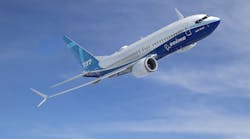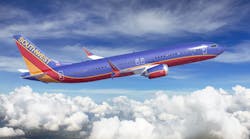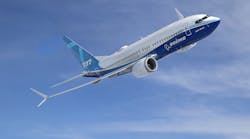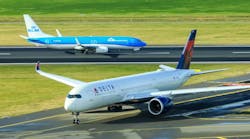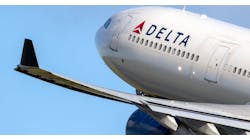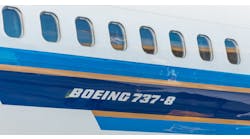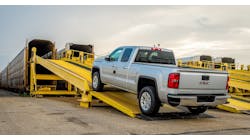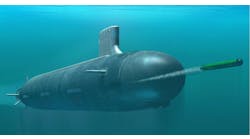The Boeing Co. and the Federal Aviation Administration are coming into conflict with each other on the matter of the 2017 certification of the jet-builder’s 737 MAX aircraft. Federal investigators have alleged that FAA did not properly evaluate the aircraft’s Maneuvering Characteristics Augmentation System (MCAS), or "anti-stall" software, which Boeing has determined is the cause of two fatal crashes.
That report is now being reviewed by the U.S. House Transportation & Infrastructure Committee.
In the past year, two 737 MAX jets were involved in crashes that killed a total of 346 passengers and crew members, reportedly because the flight-control software prevented pilots from taking corrective measures to slow the aircraft. The crashes resulted in a halt to deliveries of Boeing’s best-selling aircraft, and led to a global idling for 385 jets still in service with carriers.
According to details from the Congressional inquiry following the release of a Joint Authorities Technical Review (JATR) of FAA’s oversight and approval of the 737 MAX flight-control software, Boeing’s senior pilot in 2016 warned in a text message to a colleague that the MCAS had been “running rampant” in a simulated test flight.
The colleague’s reply indicated that Boeing would have to revise its description of the system for training manuals provided for FAA’s certification procedure.
Later, in January 2017, according to the report, the same Boeing pilot instructed an FAA employee to remove MCAS from pilot manuals and training procedures. It was in 2017 that FAA certified the aircraft for commercial service.
Now, FAA claims Boeing withheld these concerning messages from the agency for a period of months. FAA stated it is “disappointed that Boeing did not bring this document to our attention immediately upon its discovery”. It also stated it is reviewing the information to determine what action may be appropriate.
On Friday, October 18, Boeing issued a statement by president and CEO Dennis Muilenburg to assert that the company had been voluntarily cooperating with the House Transportation & Infrastructure Committee’s investigation into the 737 MAX, that it brought that relevant documents to the Committee’s attention, and that it will continue to cooperate with the Committee and all other authorities.
Muilenburg also called on FAA administrator Steve Dickson to address the issue, and assured Dickson that the OEM is “taking every step possible to safely return the MAX to service.”
The issue of liability is separate from the ongoing concern about the 737 MAX’s return to service. Testing of the revised MCAS program now is expected to start in November, at a Boeing simulator in Seattle under observation of FAA regulators.
The European Air Safety Administration has stated it will conduct separate tests of the MCAS prior to recertifying the aircraft.
Southwest Airlines and Air Canada have removed 737 MAX flights from their schedules through February 2020, while American Airlines and United Airlines have canceled their respective flights through January, in what has become an ongoing dilemma for the carriers as well as the OEM.
